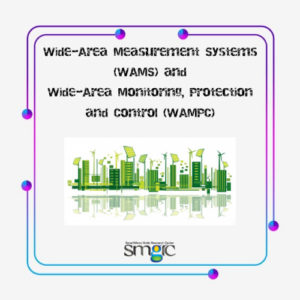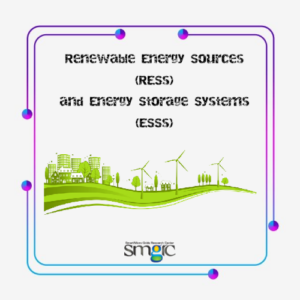
A microgrid is an ideal way to intelligently integrate renewable resources, enable customer participation in the electricity enterprise, add reliability, bring diversification of energy sources, and reduce carbon emissions and costs. The microgrids form the building blocks of the modern, smart power grid. The concept of a microgrid is inspired by the earliest electricity networks before they joined into regional and national grids. What is new in these small-scale power systems is their changing and expanding role, in the face of rising power demands, and the increasing need for supply resilience and autonomy – both in islanded and grid-connected modes.
The Microgrid committee covers different aspects of these small-scale power systems as listed in the following:
• Microgrid Dynamics and Modeling
• Microgrid Control
• Microgrid Planning and Operation
• Power Quality in Microgrids
• Energy Management in Microgrids
• Protection for Microgrids
• Communication Systems for Microgrids
• Cyber Security in Microgrids
• Ancillary Services provided by Microgrids
• Dynamic Impact on Power Systems
• Interconnected Microgrids: Modeling and Control
• Smart Homes (Energy Optimization and Security)

The emergence and development of advanced Wide-Area Monitoring Systems (WAMS), relies on synchrophasor technology, introduce new insights into the field of power system dynamics and stability. In such an environment, real-time assessment of power system security, as a key function in system operation to identify contingencies that cause stability problems, could be visualized through proposing appropriate structures. In other words, for real-time stability assessment, it is of critical importance that the computational time is sufficiently short. One approach for reducing the computational time for overall system stability assessment is to propose new methodologies that reduce the studied system dimensions. Moreover, the methods should tackle communication topologies into problem formulation in order to accurately model delays and errors.
The main focus of this research group is on real-time assessment of frequency and small-signal stabilities and control. In this way, non-local measurements, from PMUs, are utilized to damp inter-area oscillations and mitigates undesired frequency dynamics. Therefore, the main research topics of interest are:
1- Measurement-based modeling of power system
2- Slow electromechanical identification
3- Extracting frequency and small-signal features of the system
4- Assessing dynamical impacts of high penetration of Distributed Generations (DGs) and Microgrids
5- Designing of WAMS-based Under Frequency Load Shedding (UFLS) schemes

Power converters/inverters for:

Technical Committee: “Renewable Energy Resources and Energy Storage Systems” The committee research areas include:

Information and communication technology in the form of IP-based Internet has been widely used for data transmission for years and the protocols to secure the communication in this space have been developed, accordingly. Thanks to the significant achievement, the infrastructure of the Internet has also been adopted for automation, control, and monitoring purposes in industrial networks such as a smart grid. In particular, cyberspace and worldwide network in the form of the Internet of Things is motivated due to its intelligence and interoperability capabilities. Unlike the conventional Internet for data transmission, the security of infrastructures and protocols of the cyberspace considered for automation, control, and monitoring has not been developed appropriately. The existing security schemes cannot be directly adopted due to some limitations in the communication and computation resources of network entities. Furthermore, a huge amount of traffic in the uplink direction necessitates distinct performance metrics and security requirements. These challenges motivate the research and development of security schemes for confidentiality, authentication, integrity, and availability of network services deployed in the cyberspace of industrial networks. Smart grid communication as automation, control, and monitoring systems is the scope of this committee. This is a multidisciplinary committee bringing together researches and graduate students from communication, control, power systems, and computer science with the aim of exploring approaches and schemes towards the security of information and communication infrastructures in smart grids.
It will be online soon…